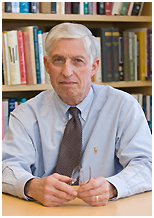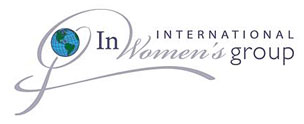
Robert Zucker, Ph.D. Director of the University of Michican Addiction Research Center
Working systematically over the last decade, Robert Zucker, Ph.D., director of the University of Michigan (UM) Addiction Research Center, has been developing a program to build a substance abuse research infrastructure for Central and Eastern Europe.
The idea for the program began for Dr. Zucker when Stanislav Golec, M.D., a Polish psychiatrist working in the UM Department of Psychiatry, contacted him about a potential collaborative project between Polish and U.S. scientists. Noticing the NIDA-funded Fogarty International Clinical, Operational and Health Services Research and Training Award (ICOHRTA) grant, Dr. Golec saw an opportunity to foster research collaborations between Polish and U.S. scientists.
Successfully competing for the ICOHRTA grant in September 2001, Dr. Zucker began a 5-year program in collaboration with the Institute of Psychiatry and Neurology in Warsaw to bolster the drug abuse and addiction research capacity in Poland by increasing research skills among biomedical and behavioral scientists in Poland, promoting research exchange, and generating new research on drug abuse and addiction in the region. Beginning in 2006, after being awarded a second ICOHRTA award, the program was extended to include collaborations in Ukraine, Slovakia, and Latvia.
Over the course of the 10 years, the program has had a substantial impact. The funding has supported 11 workshops across the region involving 285 attendees. A dozen long-term research fellows participated in 1-year fellowship programs of methodology training and mentored research in the United States, and upon returning home carried out pilot research projects developed in collaboration with their U.S. mentors. The program also supported shorter visits to the United States by senior researchers and program directors who completed research projects, established new collaborations, and developed relationships with U.S. substance abuse agencies. In addition, a new curriculum on addiction medicine was put into place at the leading medical school in Poland (Medical University of Warsaw), exposing all medical students to substance abuse clinical and basic research content.
UM faculty members now serve as consultants for a component of the Polish Ministry of Health, and one of the former trainees, Marcin Wojnar, M.D., Ph.D., is the permanent advisor to the director of the Polish Ministry of Health. In 2009, the Polish Ministry of Health agreed to support collaborative research projects funded under the NIDA International Research Collaboration on Drug Abuse and Addiction Research Program Announcements, and has forged separate research partnerships with the National Institute on Alcohol Abuse and Alcoholism (NIAAA) and the Fogarty International Center.
The program also has resulted in several off-shoot initiatives. A formal collaborative research partnership has been established between the Polish government and NIAAA to carry out a joint country research program on fetal alcohol syndrome. The program also served as the stimulus and template for a separately funded NIAAA/Fogarty International Center initiative on the development of research capacity in Poland for alcohol and injury research with emergency medicine and public health departments.
In addition, the formation of the Polish Society for Research on Addictions, formally chartered in 2007, provided a tangible means of communicating research findings and developing new collaborations. With more than 100 members, the Society held its third scientific meeting this September in Warsaw to provide an update of research on alcohol and drug research in Poland. National Institutes of Health staff Margaret M. Murray, Ph.D., NIAAA, and Steven W. Gust, Ph.D., NIDA International Program director, participated. Dr. Gust gave a talk on the state of the science on drug abuse from the global perspective, remarking on drug use statistics and emerging trends, including synthetic drug use in Europe and government policies, prevention interventions, and treatment protocols. He also reviewed recent NIDA-funded research advances and the recent activities within the International Program.
The achievements made by Dr. Zucker and his colleagues are immeasurable. Their work has created a solid foundation that will continue beyond the life of the next grant. Although the funding award Dr. Zucker received, the ICOHRTA, is no longer available (Fogarty International Center has decided to reconfigure the program and consolidate it into another program), he already has a proposal in to obtain funding to begin his second decade of work under Fogarty’s Chronic, Non-Communicable Diseases and Disorders Across the Lifespan: Fogarty International Research Training Award (NCD-LIFESPAN) (D43) program.




.png)


